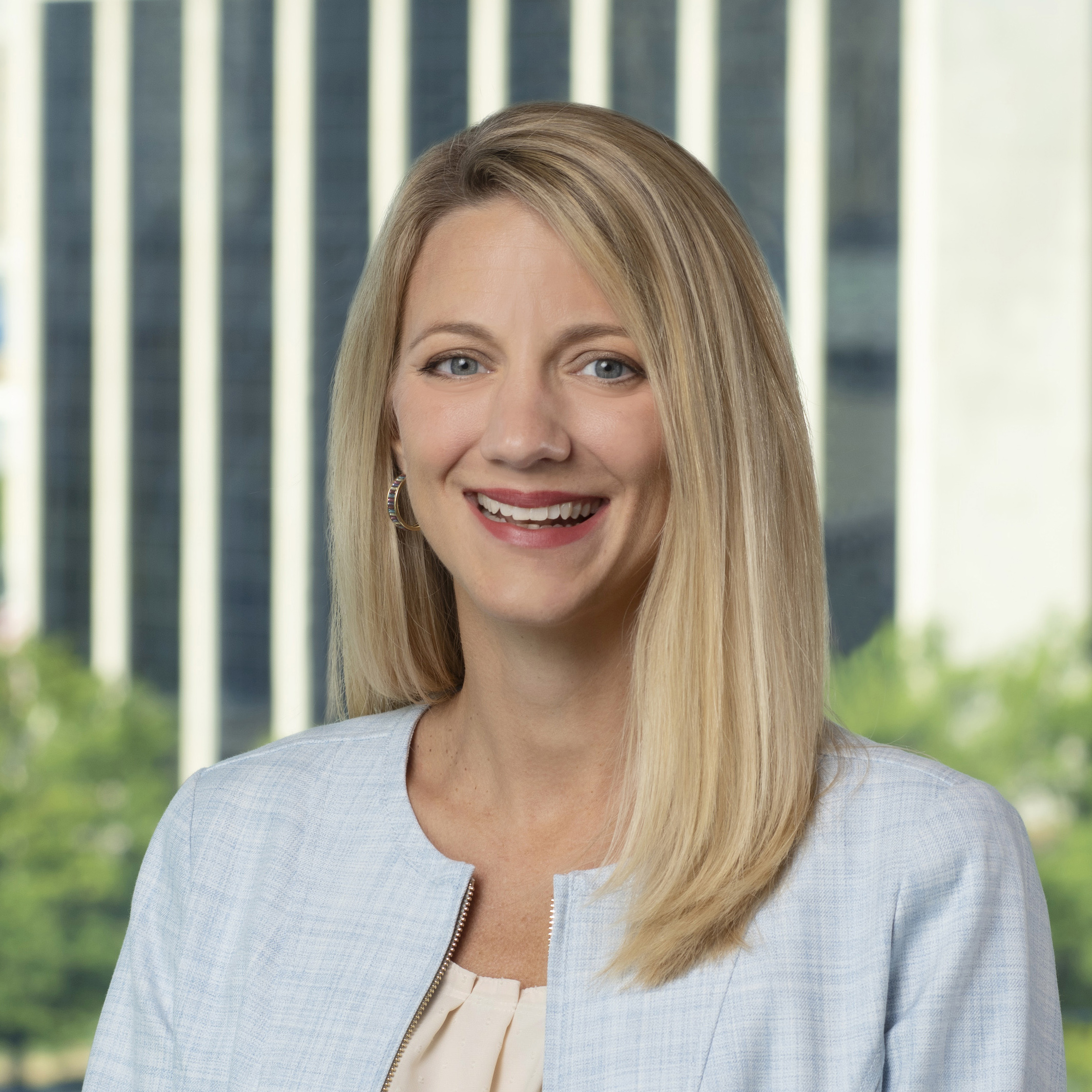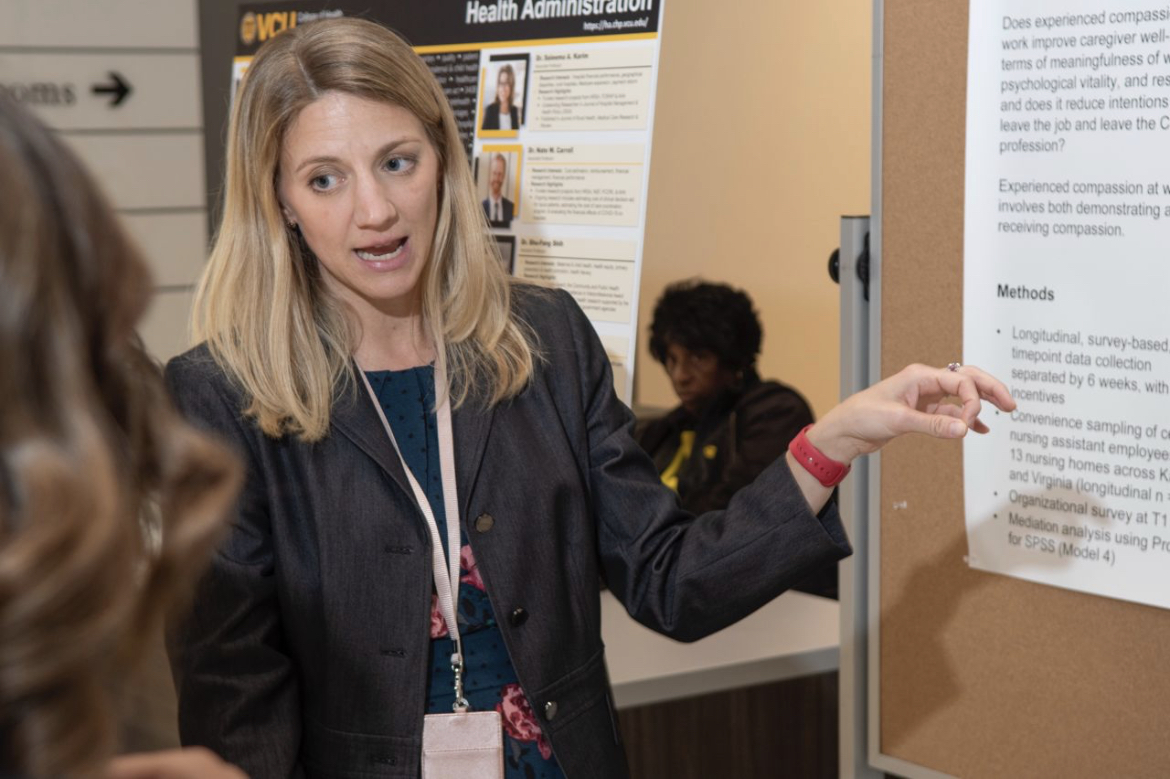From front-lines to faculty: MacDonald focuses on compassion
 As a dietician and then administrator in a skilled nursing facility, Kristin M. MacDonald witnessed how acts of compassion made a difference not only for the patients, more commonly referred to as residents, but also for the front-line providers who cared for them every day.
As a dietician and then administrator in a skilled nursing facility, Kristin M. MacDonald witnessed how acts of compassion made a difference not only for the patients, more commonly referred to as residents, but also for the front-line providers who cared for them every day.
Those observations sparked her research as a doctoral student in the Department of Health Administration – with a particular focus on certified nursing assistants (CNAs) in long-term care settings.
“Compassion flows both ways,” said MacDonald, who completed her Ph.D. in health services organization and research in May before joining the department as an assistant professor this fall. “When CNAs are able to demonstrate compassion to the residents they care for, but also receive compassion from their coworkers, supervisors and even the residents themselves – it leads to greater meaningfulness in their work.”
After completing her doctorate in May in health services organization and research from VCU, MacDonald returned to the Department of Health Administration this fall as an assistant professor. Her initial assignments include teaching management and performance, person-centered care and service learning to students in the B.S. in Health Services program.
The experience of compassion at work reduces the intentions of CNAs to leave the field, which is critical in an industry facing staffing shortages. “CNAs are the backbone of nursing homes,” said MacDonald, lead author of two abstracts published in the Journal of the American Medical Directors Association in 2024. “They provide the most direct, intimate care to residents on a daily basis. If we want to have a robust workforce to care for our aging population, we have to focus on supporting these front-line workers.
Early in her career, MacDonald saw how organizational environments that demonstrated a priority for compassion – including offering food pantries, employee relief funds, meals during shifts and family events for staff – led to greater employee engagement and better resident outcomes. “Compassion isn’t just good for the individual. It creates a richer environment for everyone,” said MacDonald, a military spouse and 2023 Tillman Scholar.

“Kristin’s front-line and research experiences complement academic work underway by other Health Administration faculty members, particularly as we look at the growing demands on skilled nursing facilities today,” said Paula H. Song, Richard M. Bracken Chair and Professor of Health Administration. “Kristin launched her research as one of our doctoral students, and having her join now as a faculty member is a testament to the quality of our program.”
In her teaching, MacDonald introduces students to the core elements of person-centered care: knowing oneself, understanding the patient holistically and empowering patients as partners in their own health. Through interactive activities and interdisciplinary team projects, students grapple with putting these principles into practice across different health care settings.
“Person-centered care is about so much more than just a patient’s medical condition,” said MacDonald, who holds a master’s degree in health care policy and management from Stony Brook University and a bachelor’s degree in nutritional sciences from Cornell University. “It’s about recognizing them as a whole person, with a unique context and goals. And that same philosophy should extend to our health care workers. They need to feel seen, heard and supported in order to provide the best possible care.”
Going forward, MacDonald will deepen her examination of the complexities of compassion in health care. What are specific organizational practices that foster compassion? How do cultural and linguistic differences impact the experience of compassion for diverse CNA populations? By shedding light on these nuances, she seeks to guide industry-level changes – as well as resources and tools - that elevate compassion and genuinely person-centered care.
“This is just the beginning,” she said. “Compassion is fundamental to health care, but we must ensure it’s being nurtured and supported at every level. That’s what’s going to make the real difference.”